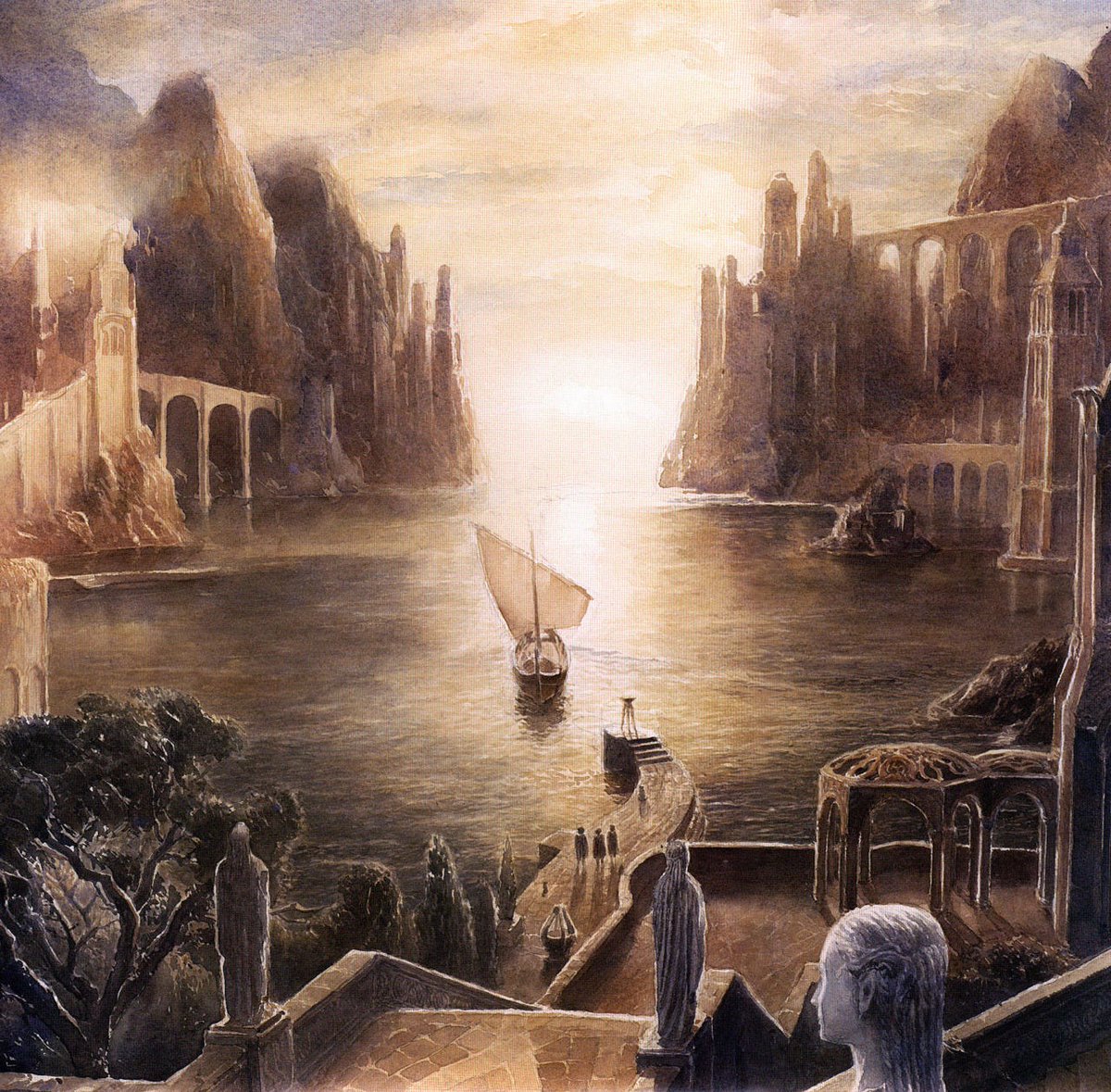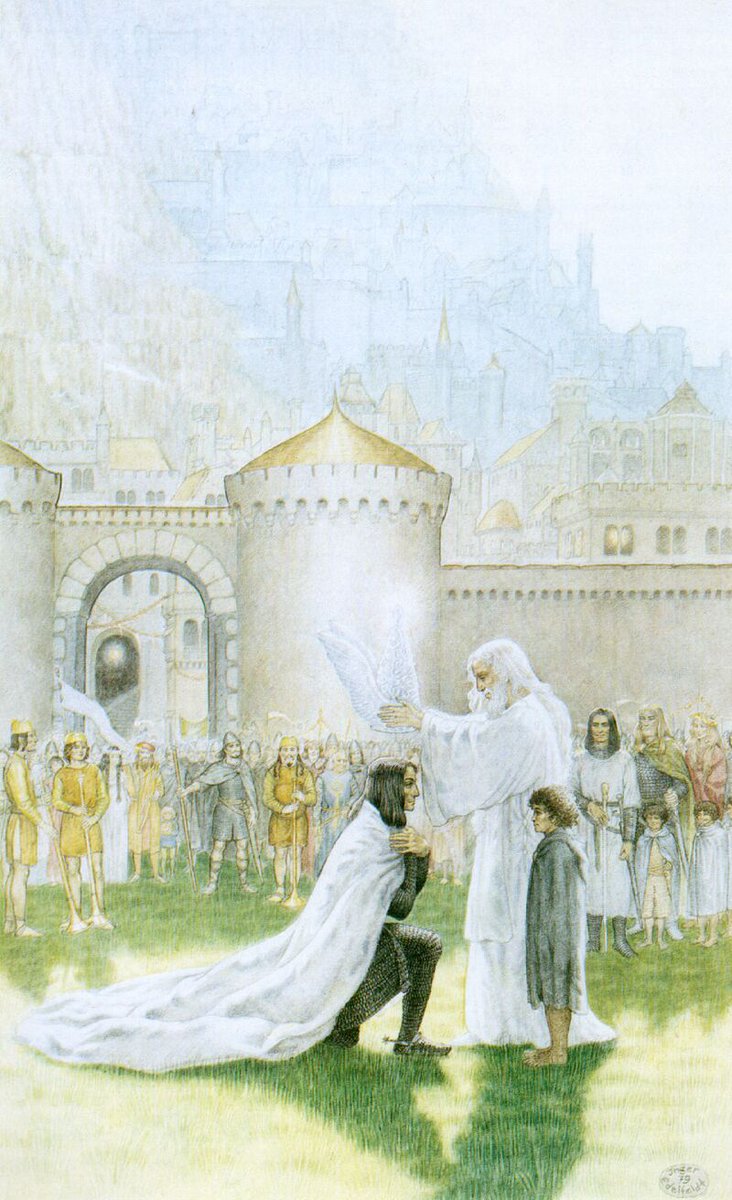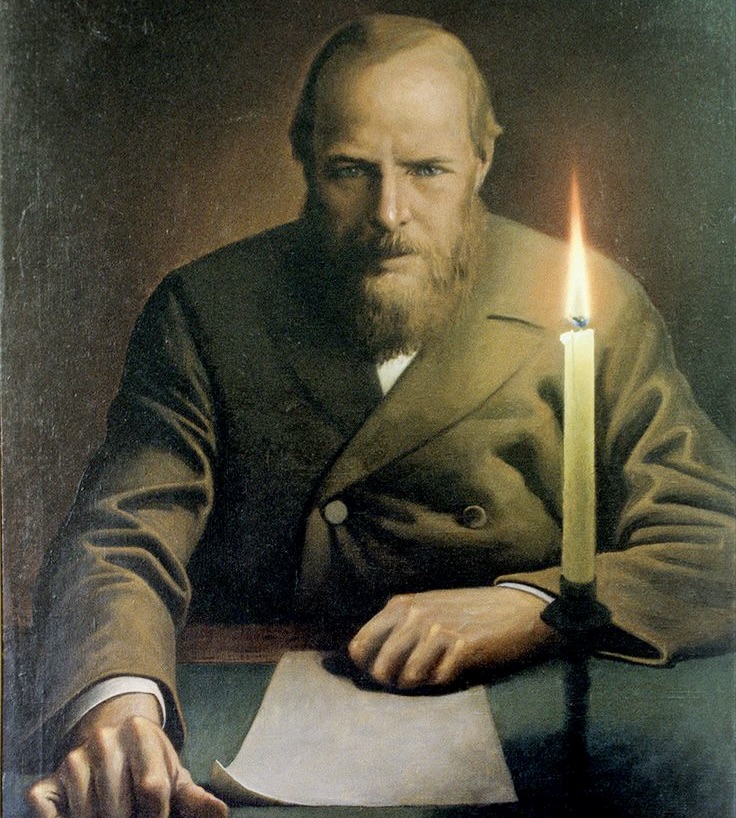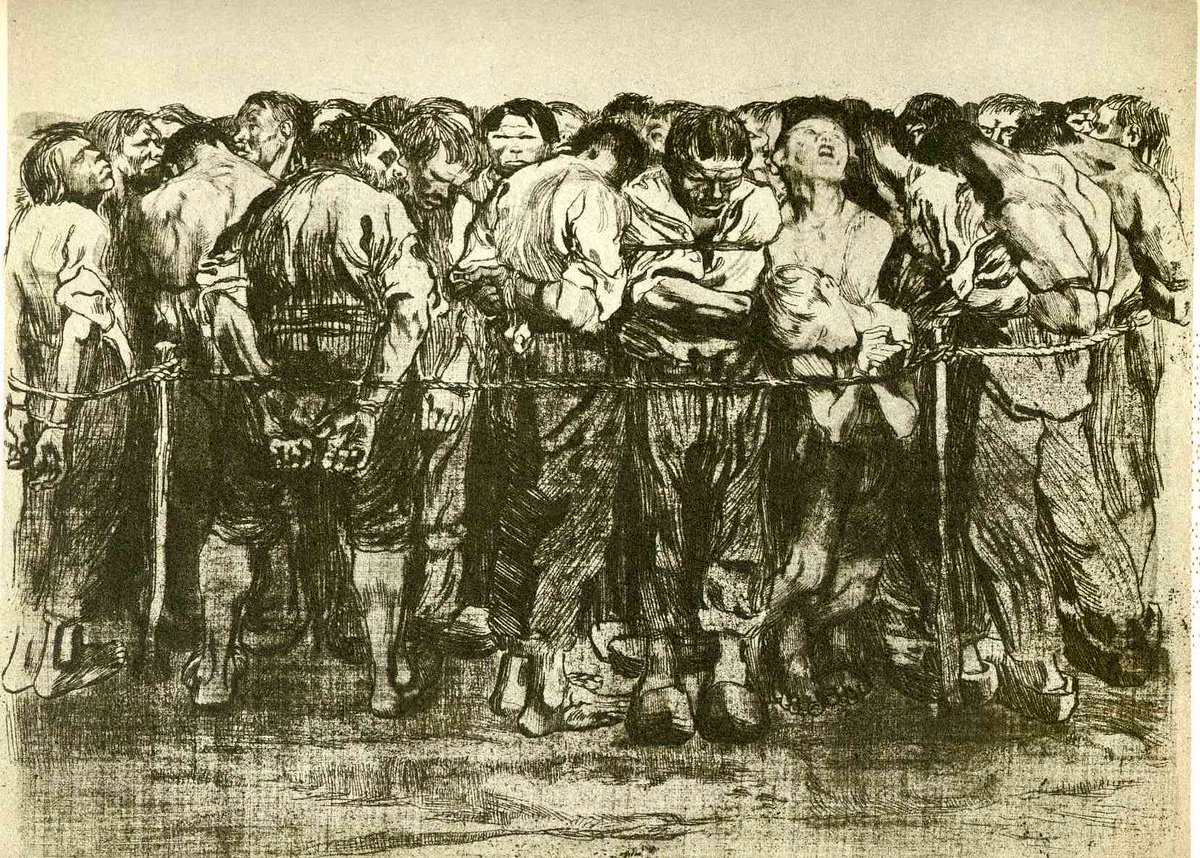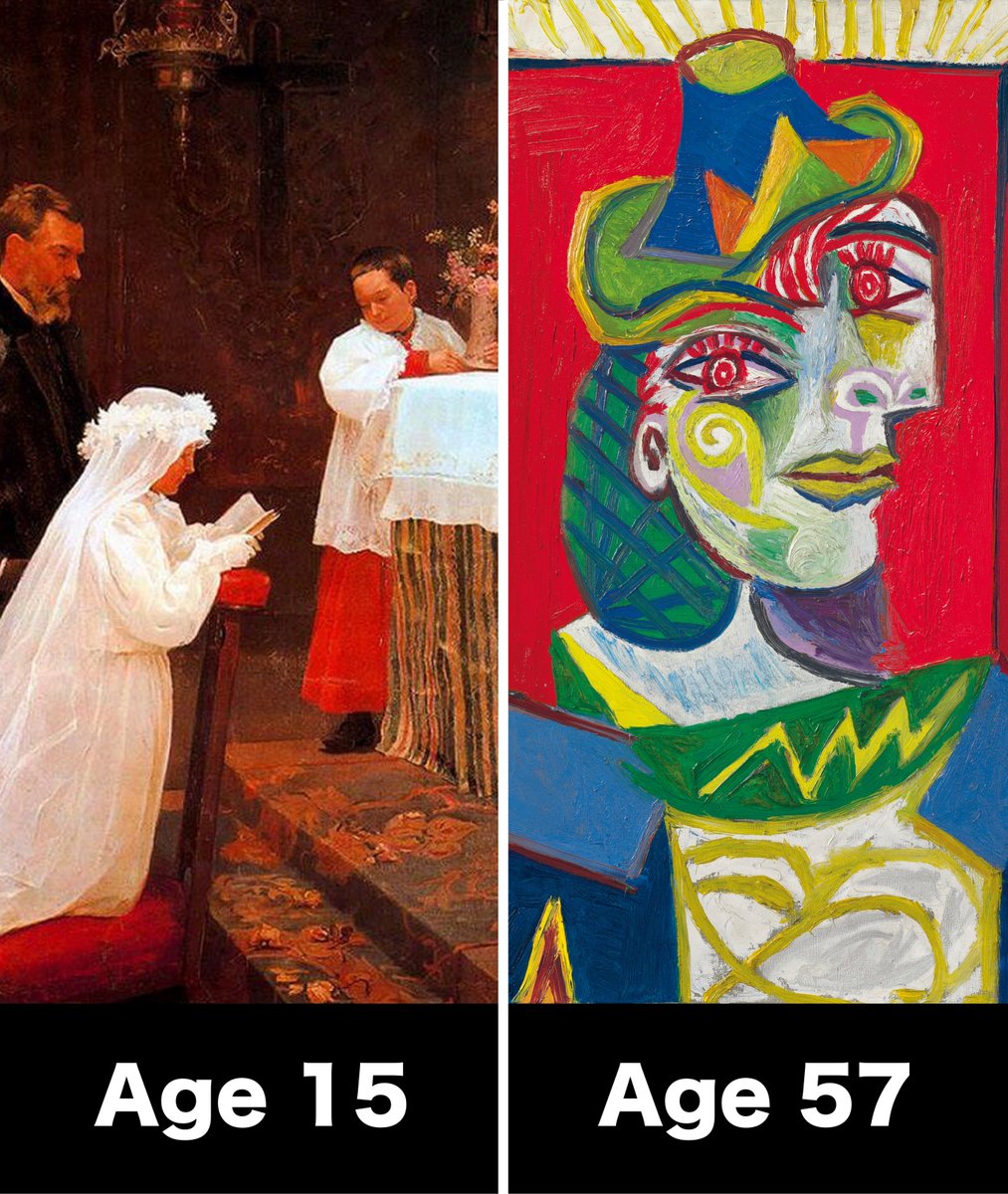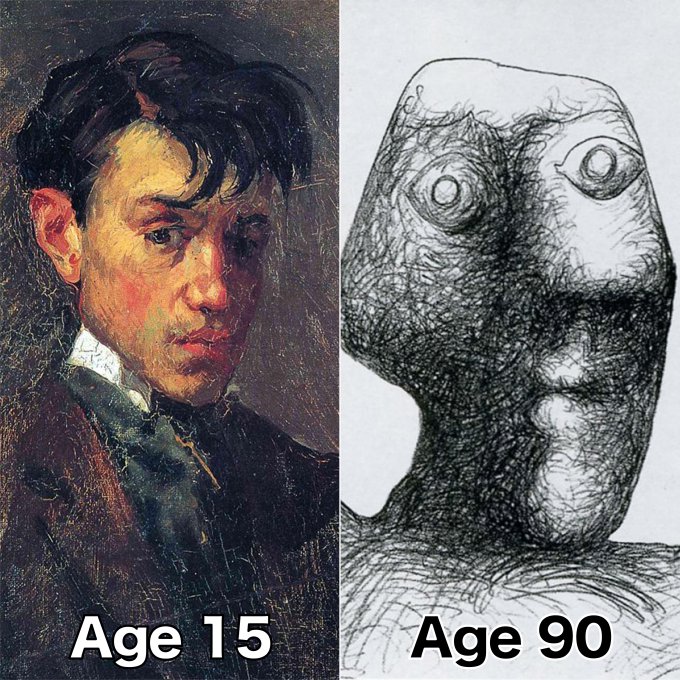America was founded to be the true successor of Ancient Rome.
But most don't know how deep the parallels run: from its grid plans to its constitution.
Here's why we still live in Rome — and why it won't collapse this time… (thread) 🧵
But most don't know how deep the parallels run: from its grid plans to its constitution.
Here's why we still live in Rome — and why it won't collapse this time… (thread) 🧵
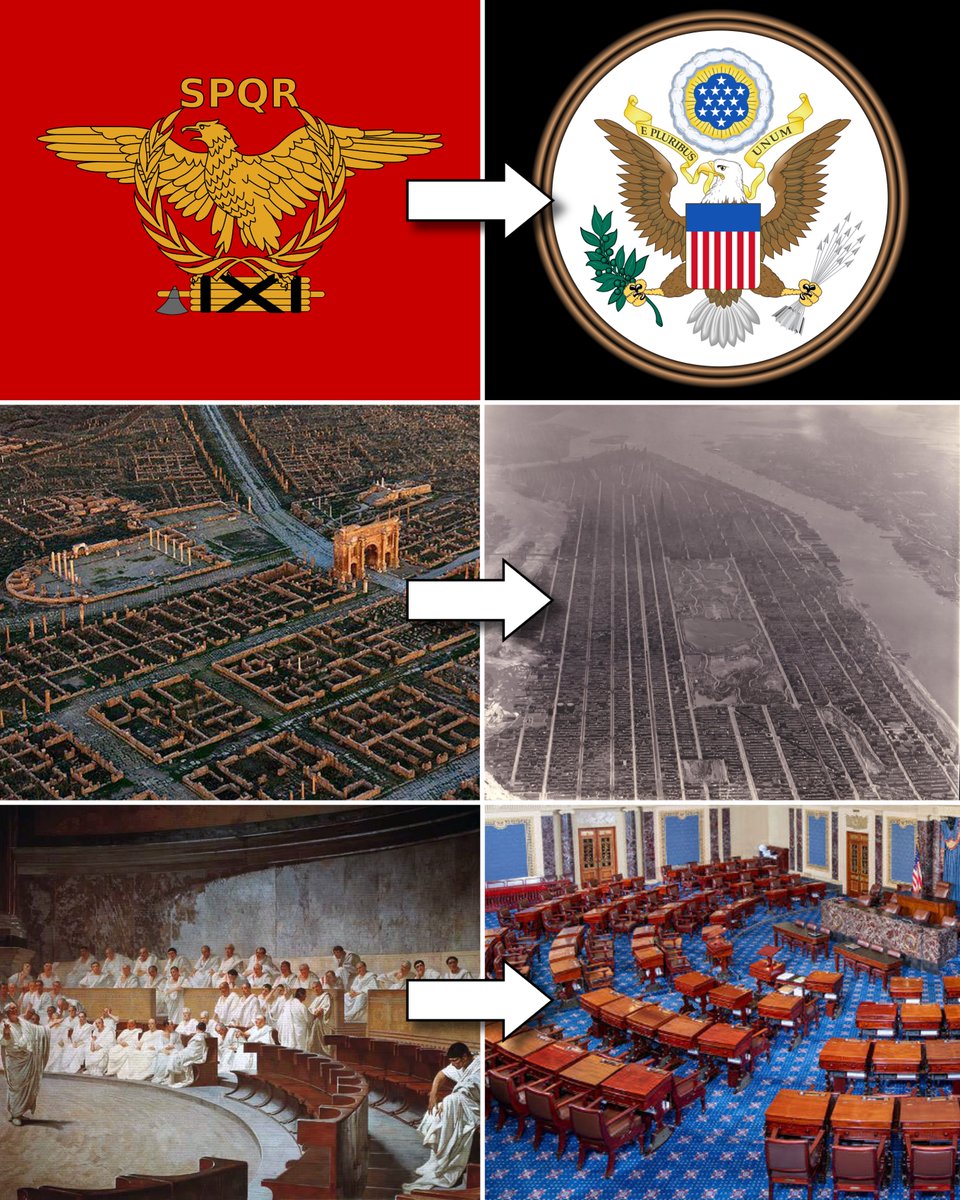
It's no secret the American Founders sought to emulate and perfect the Roman Republic.
They chose for their seal an eagle — Rome's symbol of wisdom and power — but one indigenous to North America.

They chose for their seal an eagle — Rome's symbol of wisdom and power — but one indigenous to North America.


They also made an important logo change: America's eagle clutches an olive branch.
The power of peace was central to the American ideal, as it was in Rome's founding myth (the olive branch extended by Aeneas in Virgil's Aeneid).

The power of peace was central to the American ideal, as it was in Rome's founding myth (the olive branch extended by Aeneas in Virgil's Aeneid).


Like Rome, America was founded on a semi mythical tale.
Paul Revere's midnight warning of incoming British forces became a (slightly exaggerated) story of bravery when America needed a unifying hero.
Paul Revere's midnight warning of incoming British forces became a (slightly exaggerated) story of bravery when America needed a unifying hero.

And the US venerated its heroes by comparing them to the Roman Republic's heroes.
Washington's voluntary transition of power was like that of Cincinnatus, who led Rome as dictator through a military crisis before (amazingly) stepping away.

Washington's voluntary transition of power was like that of Cincinnatus, who led Rome as dictator through a military crisis before (amazingly) stepping away.


Cincinnatus' civic virtue stood at the heart of the Founders' vision: a republic that would never fall to tyranny.
Cincinnati took his name to remind them of just that...
Cincinnati took his name to remind them of just that...

In architecture, the US didn't shy away from comparing itself to history's greatest empire.
New York's mighty Penn Station was modeled on the Baths of Caracalla, before it was demolished...

New York's mighty Penn Station was modeled on the Baths of Caracalla, before it was demolished...


Then, Neoclassicism became Art Deco.
It kept elements of classical design but fused them with a powerful new energy — forging a uniquely American style worthy of a burgeoning civilization.

It kept elements of classical design but fused them with a powerful new energy — forging a uniquely American style worthy of a burgeoning civilization.


There's no shortage of symbolic links to Rome, but the US also emulated it in a practical sense.
Strict grid plans were the perfect system for a rapidly expanding nation, just like the "insulae" of Roman military camps and colonies.

Strict grid plans were the perfect system for a rapidly expanding nation, just like the "insulae" of Roman military camps and colonies.


Ancient Rome gifted the modern world endless innovations, but above all, its politics.
The Roman Republic became the fundamental model for the American Republic...

The Roman Republic became the fundamental model for the American Republic...


But Rome's Republic, however successful, still fell into tyranny after 500 years with the rise and fall of Caesar.
How do you stop that from happening?
How do you stop that from happening?

The Founding Fathers studied ancient thinkers like Plato, who warned democracies inevitably fall into tyranny.
To prevent this, Polybius said you must combine elements of the three basic systems (below)...
To prevent this, Polybius said you must combine elements of the three basic systems (below)...

That was the brilliance of Rome's Republic: Consuls (monarch-like), Senate (aristocratic), and Assemblies (democratic).
The American system followed: the Presidency (monarch-like), the Senate (aristocratic) and the House (democratic).
The American system followed: the Presidency (monarch-like), the Senate (aristocratic) and the House (democratic).

But to fix the threat of tyranny, the Founders had to go further — so they looked to the Enlightenment.
They took Montesquieu's ideas on checks and balances, then threw in an independent Judiciary so powers were checked like never before.
They took Montesquieu's ideas on checks and balances, then threw in an independent Judiciary so powers were checked like never before.
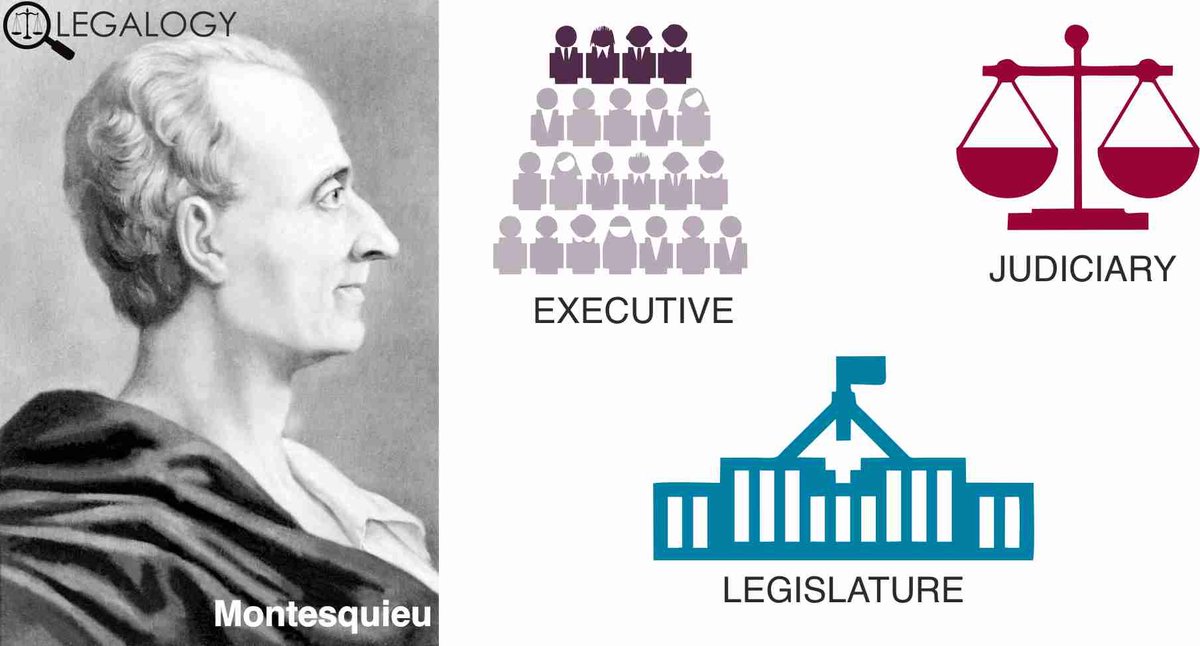
Still, the Founders knew that no system can fully guard against the corruption or ambition of men.
For them, history's main cause of tyranny was loss of virtue among citizens...
For them, history's main cause of tyranny was loss of virtue among citizens...

They knew, for a free society to survive, the people must themselves protect it — and be educated on why they should:
"If a nation expects to be ignorant & free, in a state of civilisation, it expects what never was & never will be".
"If a nation expects to be ignorant & free, in a state of civilisation, it expects what never was & never will be".

For a republic to survive, the people must study civic virtue: the dedication to the common good they saw in Cincinnatus, Cicero, and embodied by Washington.
No ultimate protection exists for this, but they did have one more trick...
No ultimate protection exists for this, but they did have one more trick...

The inalienable rights of man. The Bill of Rights' 1st Amendment: freedom of religion, speech and press that no government can take.
With that backstop of freedom, Americans could always study for themselves the tyrannies of history.
With that backstop of freedom, Americans could always study for themselves the tyrannies of history.

As Cicero, defender of Rome's Republic to his death famously said:
"Not to know what happened before you were born is to be a child forever."
"Not to know what happened before you were born is to be a child forever."

If these threads interest you, I go deeper in my free newsletter every week — do NOT miss this week.
96,000+ people read it: history, art and culture 👇
culture-critic.com/welcome
96,000+ people read it: history, art and culture 👇
culture-critic.com/welcome
And here's a beautiful (and free) course on the Roman Republic — so you can immerse yourself in it as the Founders did:
bit.ly/3AG9DPX
bit.ly/3AG9DPX
• • •
Missing some Tweet in this thread? You can try to
force a refresh


